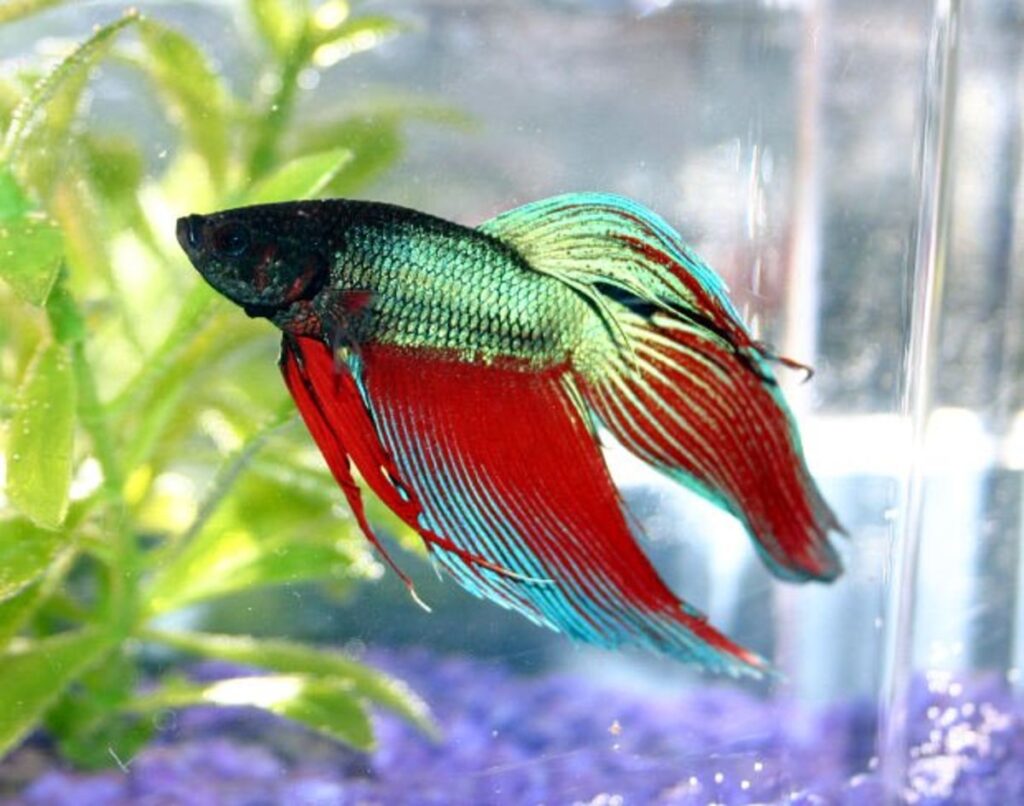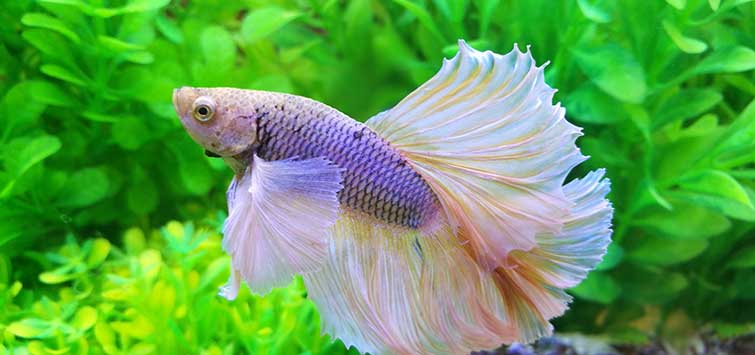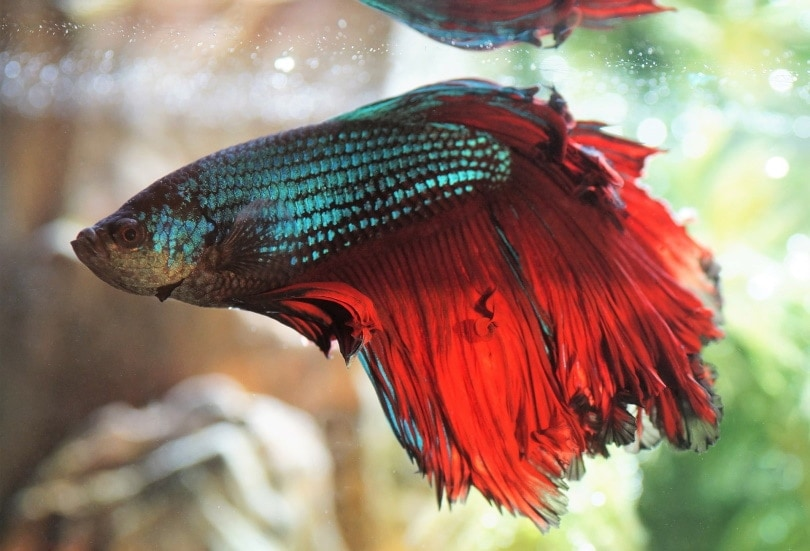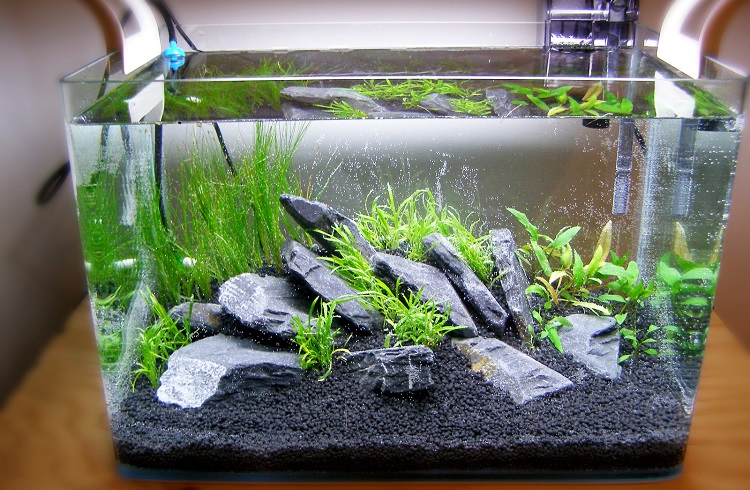When it comes to betta fish, you may notice that they love to put on a colorful display with their flowing fins and vibrant colors. However, there might be times when you find your betta fish staying still, seemingly motionless. Before jumping to conclusions or worrying about your fish, it’s essential to understand their behavior and the potential reasons for their stillness.

Understanding Betta Fish Behavior
Before we delve into the reasons why your betta fish might be staying still, let’s take a moment to explore their normal behavior. Betta fish are known to have active swimming patterns and are highly interactive with their surroundings. They utilize their pectoral fins to explore their environment and can often be seen gracefully gliding through the water.
Normal Betta Fish Behavior
Active Swimming Patterns: Betta fish are known for their agility and active swimming patterns. They love to explore their surroundings, darting from one area to another with graceful movements.
Interaction with Surroundings: Betta fish are highly curious and always on the lookout for new things. They enjoy investigating their environment, including plants, decorations, and even the occasional reflection in the glass. This interaction keeps them engaged and mentally stimulated.
Male bettas thrive solo: Betta fish continues to thrive best when they are not stressed by other fish in the tank. While female bettas can sometimes coexist peacefully, male bettas are more territorial and may require separate tanks to prevent aggression. Monitoring their behavior closely ensures a harmonious environment.

Potential Reasons for Betta Fish Staying Still
While betta fish are generally active, there are several reasons why they might choose to stay still at times. Let’s explore some potential factors that may contribute to their stillness.
Environmental Factors
One common reason for your betta fish staying still could be related to their environment. Environmental factors play a significant role in a betta fish’s overall well-being.
Water Temperature: Betta fish are sensitive to temperature changes. If the water is too cold or too hot, it can make them sluggish, leading to periods of stillness. Ensure that the water temperature in their tank is within the recommended range of 78-80°F (25-26°C).
Water Quality: Poor water quality can also affect your betta fish’s behavior. If the water is dirty or contains high levels of ammonia or nitrites, it can stress them out and make them less active.
Water Parameters
Regularly testing the water and making necessary adjustments ensures a stable environment, preventing stress and promoting the vibrant colors and active behavior that Bettas are known for, check out the above mentioned API Freshwater Master Test Kit.
Ammonia and nitrite: Should be 0 ppm
Nitrate: Should be less than 20 ppm
PH: The ideal pH for Betta fish is slightly acidic to neutral, ranging between 6.5 and 7.5. Maintaining this pH range is crucial for their health and well-being, as it closely mimics their natural habitat in Southeast Asia’s slow-moving waters. Additionally, consistent pH levels help in reducing the risk of diseases and promoting overall longevity.
Health Issues
Another factor that can cause betta fish to stay still is related to their health. Stress and illness can significantly impact their activity levels and overall behavior.
Stress: Betta fish can experience stress due to various factors, such as sudden changes in their environment, aggressive tank mates, or inadequate hiding spots. High-stress levels can make them retreat and stay still to conserve energy and feel safe.
Illness or Disease: If your betta fish is unwell, it may exhibit symptoms of stillness and lethargy. Common fish ailments like fin rot, ich, or fungal infections can affect their activity levels. Look out for physical symptoms like loss of appetite, faded coloration, or erratic breathing, indicating potential health issues.
Observing and Evaluating Still Betta Fish

It’s important to closely observe and evaluate your betta fish when they are staying still. Take note of any accompanying signs of stress or illness, as these can provide valuable insights into their well-being.
Identifying Signs of Stress or Illness
Physical Symptoms to Look for:
– Loss of Appetite: If your betta fish shows a sudden disinterest in food, it could be a sign of stress or illness.
– Faded or Dull Coloration: A betta fish with a vibrant coloration is a healthy betta fish. If their colors appear faded or dull, it may indicate an underlying health issue.
– Erratic or Labored Breathing: Rapid or labored gill movements can be a sign of poor oxygenation or respiratory problems, which may require immediate attention.
Behavioral Indications of Stress or Illness:
– Lethargy: If your betta fish remains motionless for an extended period, it might indicate that they are feeling unwell or stressed.
– Isolation: Betta fish usually love to interact and explore their surroundings. If they display an increased desire to hide or isolate themselves, it could be a sign of underlying issues.
– Flicking or Scratching Against Objects: Excessive flicking or scratching against objects in the tank may suggest that your betta fish is dealing with parasites or skin irritations.
Potential Solutions and Preventive Measures

If you notice your betta fish staying still and suspect that it might be due to environmental factors or health issues, there are several steps you can take to address the situation and prevent further complications.
Addressing Environmental Factors
Ensuring Optimal Water Temperature: Use a reliable aquarium thermometer to monitor the water temperature and make any necessary adjustments to keep it within the recommended range of 78-80°F (25-26°C).
– Regular Water Changes: Perform routine water changes to keep the aquarium clean and rid it of harmful ammonia and nitrites.
– Proper Filtration: Invest in a suitable filtration system to maintain a healthy and stable environment for your betta fish.
Reducing Stress for Betta Fish

Providing Hiding Spots: Create hiding spots within the tank using decorations or live plants, allowing your betta fish to retreat and feel secure whenever they need a break.
Minimizing Loud Noises or Vibrations: Keep the aquarium in a peaceful area away from excessive noise or vibrations, as these can stress out your betta fish.
Avoiding Overcrowding: Betta fish prefer to have their own space. Avoid overcrowding the tank with too many fish or aggressive tank mates that may cause stress or territorial conflicts.
Consulting a Veterinarian for Health Issues
If you suspect that your betta fish is unwell or exhibiting signs of illness, it’s crucial to consult a veterinarian with expertise in fish health. They can provide a proper diagnosis and recommend suitable treatment options or medications to address the underlying issue.
Keep the Aquarium Clean

Keeping the aquarium clean is essential for betta fish health. Betta fish lying still at the bottom of the tank often indicates poor water quality. Aquarium enthusiasts stress the importance of regular maintenance to prevent this. Check the water parameters frequently using a test kit from your local pet store to ensure optimal conditions.
Proper filtration is key to managing water flow, as bettas prefer gentle currents. Regularly clean tank decorations and substrate to avoid harmful bacteria buildup. Feeding high-quality frozen foods and removing uneaten food can also help maintain tank water quality. By keeping the aquarium clean, betta fish owners can ensure their fish remain healthy and active.
How Often Should I Change the Water in My Betta Fish Tank?

Betta fish owners often wonder how frequently they should change the water in their tank. Regular water changes are crucial for maintaining healthy water parameters, which in turn keeps your betta fish active.
For a small tank, changing 25-30% of the water every week is recommended. For larger tanks, changing 20-25% every two weeks is sufficient. Monitoring water temperature regularly and ensuring it’s stable is also vital.
Frequent water changes help remove toxins and maintain the overall health of your tropical fish. Always use a water conditioner to treat tap water before adding it to the tank. A local pet store can provide the necessary supplies for maintaining a clean and healthy environment.
Conclusion
In conclusion, when you find your betta fish staying still, it’s essential to consider various factors that may contribute to this behavior.
Understanding the normal behavior of betta fish, identifying signs of stress or illness, and taking appropriate measures to address environmental factors and reduce stress can help maintain a healthy and happy betta fish. Regular observation and attentive care are key to ensuring the well-being of your aquatic companion.



